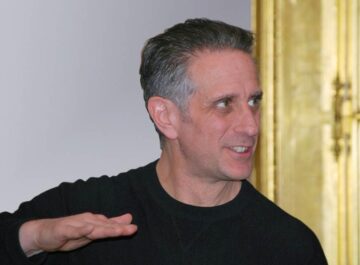by Paul Bloomfield

Marcus Aurelius wrote, “The best revenge is to not be like your enemy”. All ought to heed this wisdom: the right and the left, across classes, races, religions, and cultures, in personal life, politics, and war. Don’t be like the people you despise. Sounds easy, right?
One thing everyone has in common is that we all look down on our enemy: we think we are better than “them”. But if so, why do we so often see people react to their enemy by doing exactly what their enemy has done to them? Unsurprisingly, this is easiest to spot when others do it!
Examples are myriad. Counterexamples are rare: Nelson Mandela, the Dalai Lama. Perhaps the most ignored verse of the New Testament advises us to “turn the other cheek” when slapped by our enemy.
We (whoever the “we” are) have been dehumanized, disempowered, and oppressed by others. We have been treated in ways which are nakedly unjust and plain wrong. But as soon as we get sufficient power, once we get control, we go onto dehumanize, disempower, oppress those who have done so to us, convincing ourselves this is justice. It is all too easy to stoop to the level of our enemy.
If we defeat our enemy by acting like them, if they succeed in bringing us down to their level, then we have lost regardless of the outcome. Maybe we survive, but we survive through degradation: we become as bad as those we revile. We cut off our nose to spite our face.
For instance, humans often respond to their enemy’s anger with anger, when any fool can see that getting angry only makes everything worse for everyone. Who doesn’t say and do stupid things when angry? It is the nature of anger. But we do not learn.
If we are to avoid being as bad as the people we hate, we must be better than them regardless of what they do. How? Well, look at what they do. See what we hate? Don’t do that.
They are angry and dogmatic. They are power-hungry, they bend the truth and the rules to take unfair advantage of others; they are egocentric and biased against everyone unlike them; they see only their side, only their problems. They use hypocritical double standards: they don’t practice what they preach, they are pots calling kettles “black”. They are overly-confident, self-righteous, and arrogantly convinced of their rectitude.
The only way to avoid this is for each of us to look in the mirror and get straight with ourselves. In his sermon on self-deceit, Bishop Butler wrote, “Suppose then an enemy were to set about defaming you, what part of your character would he single out?” That, he concludes, is what you are most likely to be deceiving yourself about.
What evidence could our enemy marshal into reasonable charges against us of “self-righteous arrogance”? How much more do we talk than listen? How us/them, zero/sum, always/never are we? How much do we manipulate evidence to support the conclusions we wish to be true? Maybe no one can hear everyone’s suffering, but whose suffering do we steadfastly ignore?
We are “crooked timber” (Kant’s phrase), so we ought to “err in the opposite direction” (Aristotle’s solution): we must temporarily bend past the point of straightness to end up permanently straight. To unpack the analogy, we have all made mistakes so, in acting now, our first priority ought to be learning our lessons and making amends when and where we can. We ought to be the adults in the room and lead by example. We ought to maintain our self-respect. We ought not to compromise our integrity, abandon the moral high ground, or sully our dignity. We ought to give others the same basic respect we demand from them.
Don’t be greedy for power, be greedy for justice.
Realpolitik rebels, “In the real world, this high-minded philosophy will get you killed.” And there are certainly times when not “fighting dirty” guarantees defeat: if the world were fully unjust, a fully just person stands no chance. But this is only true in a fully unjust world and, thank goodness, our world is not that one (yet?) Yes, there is injustice all over to be reckoned with — we are mournfully awash with injustice — but we are not yet in a Hobbesian “war of all against all”. There is still a humane center, if it can only hold.
Justice for “me and not thee” is justice for no one. Regardless of what our enemy does, it falls upon each of us to stand up for justice for everyone, including our enemy. They need justice as much as we do, right?
***
 Paul Bloomfield is Professor of Philosophy at the University of Connecticut and specializes in moral philosophy and metaphysics. He is the author of Moral Reality (2001), The Virtues of Happiness (2014), the editor of Morality and Self-Interest (2008), and the co-editor, with David Copp, of The Oxford Handbook of Moral Realism (2023).
Paul Bloomfield is Professor of Philosophy at the University of Connecticut and specializes in moral philosophy and metaphysics. He is the author of Moral Reality (2001), The Virtues of Happiness (2014), the editor of Morality and Self-Interest (2008), and the co-editor, with David Copp, of The Oxford Handbook of Moral Realism (2023).
